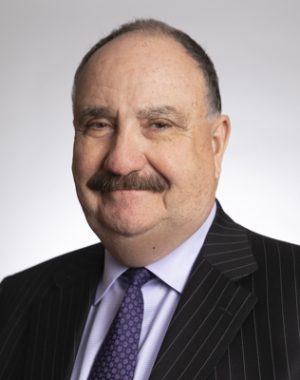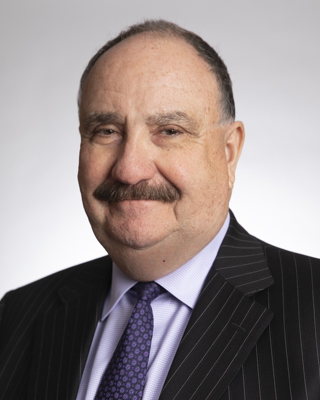Sustainability is a meaningful concept in many areas of human concern, including business, economics, ecology, and financial planning. Preceding the current usage of the term, in biology and -farming, there was/is the concept of “sustained yield.” Webster’s Third New International Dictionary defines sustained yield as: A recurrent increment of a biological resource (e.g., timber or fish) such that the portion removed by one harvest is replaced by growth or reproduction before another harvest occurs.
An Unsustainable Harvest
We have all heard about farmland that has been “farmed out” or exhausted by too much planting and too much harvesting in a compressed period of time; this results in soil that is spent and sterile. It can no longer sustain anything. The clear cutting of forest land is also disastrous. Forests that are picked clean are vulnerable to soil erosion and may never recover.
In financial planning, sustainability is a crucial principle when helping people plan their financial harvest (distributions) when they retire, so that their financial resources will sustain them until the end of their lives. Harvesting too much too fast in this situation can also result in disaster.
Optimizing All Resources
One factor in sustainability is optimizing all available resources. Sports teams and teams of employees at work are the most successful when they engage their best talent in positions where they can be most productive. Have you ever watched a sporting contest in which the coach keeps the most productive player on the bench for some mysterious reason during a close game?
Equal Pay for Equal Work
We have a gender discrimination problem in the USA. You may have heard. We are not the worst country in the world, but you may be surprised to learn that we are ranked 35th, after many other countries, in creating sustainable opportunities for women. And while you may be familiar with the fact that women in the United States receive 77 cents on the dollar when compared to men, you may be extremely surprised to hear that in the Silicon Valley right here in liberal California, that figure is 53 cents on the dollar when compared with men.
These are just two examples of facts Bonnie and I learned this summer when we attended a presentation by Dr. Kellie McElhaney, at the Cal Alumni Family Camp in Pinecrest, California, known as the Lair of the Bear. Many of you have either heard of “The Lair” or have been there yourselves. That night, in front of the campfire, she introduced her two teenage daughters, whom, she explained, were the two main reasons why she is so passionate about women’s issues as they relate to sustainability.
Dr. McElhaney’s message is important for women but it may be even more important for men. Claire Cain Miller wrote in the Sunday New York Times on 9/7/14:
One of the worst career moves a woman can make is to have children. Mothers are less likely to be hired for jobs, to be perceived as competent at work or to be paid as much as their male colleagues with the same qualifications. For men, meanwhile, having a child is good for their careers. They are more likely to be hired than childless men, and tend to be paid more after they have children.
Population Growth
This amounts to a triple insult:
- One of the most sustainable economic factors for any country is to have a growing population. We need women to want to have children.
- Because of our gender bias, we -punish mothers in the workplace.
- Our gender bias gives men much of the credit that women deserve.
Shelley J. Correll, a sociology professor at Stanford University wrote a study in which fake resumes were sent to hundreds of employers. The resumes were identical except for some that included a line about being a member of a parent-teacher association. “Mothers were half as likely to be called back, while fathers were called back slightly more often than the men who did not mention parenthood.”
Special Event at Bell Investment Advisors in November
This is only a sampling of the reasons why we have invited Dr. McElhaney to be our featured speaker at a special event on Thursday, November 13, from 6 to 8:30 pm. Her topic will be “The Business Value of Investing in Women.” Join us for the event in the 19th floor conference room of our building at 1111 Broadway, Oakland 94607. Don’t miss this important -evening! Space is limited, so reservations are required. Please contact Jaye Roundtree at 510.433.1066 to register for this event, or email her at info@bellinvest.com.
In Memoriam: Hyman Resnick, 1924–2014
In September, we lost our good friend and my original business partner, Dr. Hy Resnick. As I think about him, I realize I can say of him that I have never known a person who lived with more passion than he. Hy lived fully and passionately with his wife, Barbara, for over 55 years, and extended that passion and enthusiasm to his children, grandchildren, blackjack, opera, the 49ers, the Giants, theater, mathematics, science, bowling, literature, investments, food, wine, and travel. He also lived most of his 89 years with the energy of a 25-year-old!
In 1991, Hy became restless in his first retirement (from a full career at Chevron), and after first becoming a client of mine at another firm, offered to join me in launching Bell Investment Advisors. It was just the two of us back then, and we did everything. We joked that the physical assets of the new firm included two desks and two chairs, one of which was broken.
We are still using many of the systems that Hy developed for our investment -strategy and analytical processes. He stopped working with our clients in 2000, but remained active on our Investment Committee until 2008.
Hy was born in Cambridge, Massachusetts in 1924. After serving two years in the Navy during World War II, he earned his doctorate degree from MIT in Chemical Engineering. He enjoyed a 37-year career with Chevron where, in addition to his engineering responsibilities, he researched investments for Chevron and served on the retirement committees that hired investment managers for Chevron’s pension funds.
Hy is here every day in spirit and in practice. We are forever grateful for his invaluable help and sustainable legacy. We who knew him well remember him with a smile, deep respect and affection.


